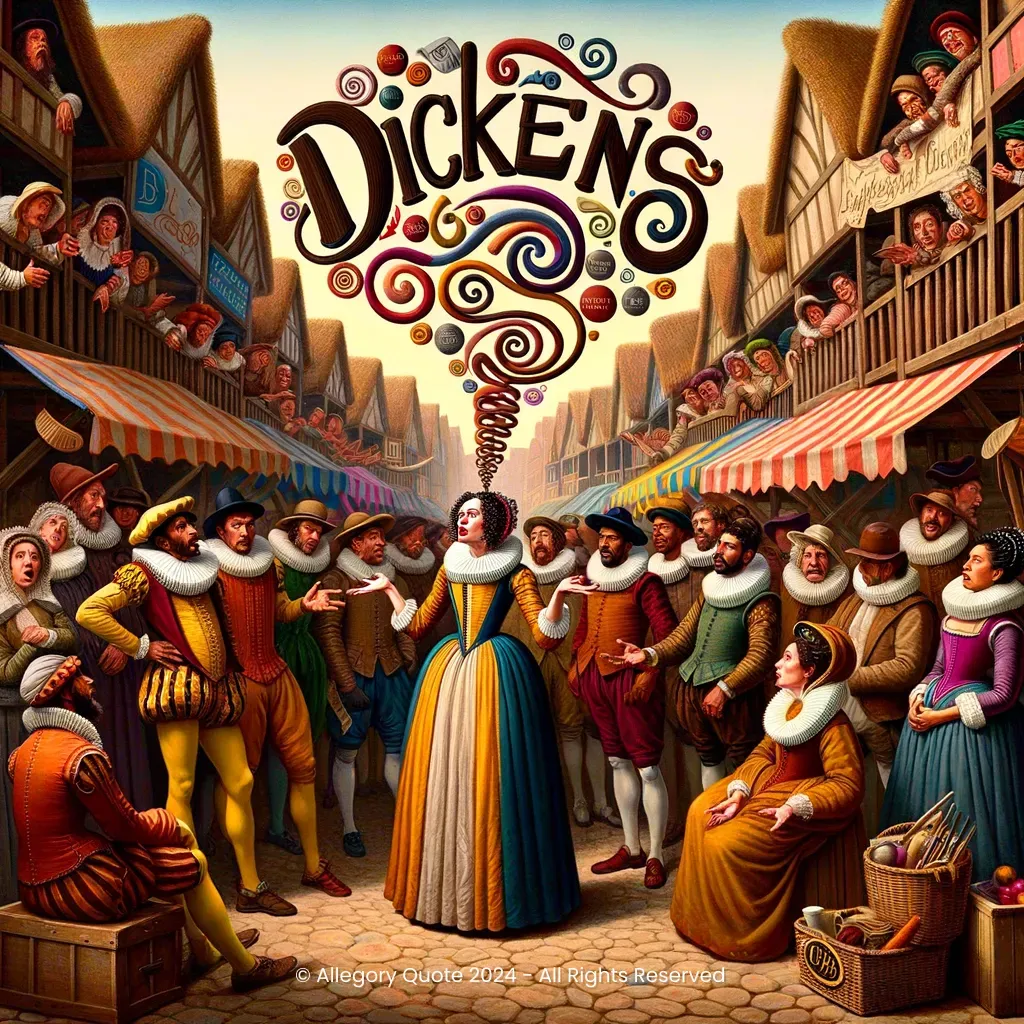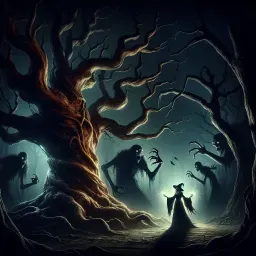I cannot tell what the dickens his name is

0
0
0
0
- Meaning
- The phrase "I cannot tell what the dickens his name is" uses the word "dickens" as a mild oath, which means "devil" or "deuce." Mistress Page is expressing her frustration or confusion about not knowing the person's name. In this context, saying "what the dickens" is similar to saying "what the heck" or "what the devil." The phrase reflects a blend of exasperation and curiosity.
- Allegory
- The image features an Elizabethan village to set the historical context of Shakespeare's work. The villagers’ engaged conversations and the market stalls evoke the everyday life of the period. Mistress Page at the center, with an animated expression and gestures, underscores her confusion, while the whimsical "dickens" above her head visually represents her exclamation. The curious crowd adds a layer of community interaction and shared humor, encapsulating the lighthearted and playful essence of the phrase and its usage in the play.
- Applicability
- This phrase can be used in everyday life to humorously or lightly express confusion about someone's identity or name. For example, if someone forgets an acquaintance's name during a conversation, they might say, "I cannot tell what the dickens his name is," to convey their bewilderment in a playful manner.
- Impact
- Shakespeare's works, including phrases like this, have had a profound impact on English literature and language. Many phrases coined by Shakespeare continue to be used today. This particular phrase adds to the rich tapestry of idioms and colloquialisms in the English language, showcasing Shakespeare's influence on our everyday speech and cultural expressions.
- Historical Context
- "The Merry Wives of Windsor" was written between 1597 and 1601 during the Elizabethan era, a period known for its flourishing arts and culture, with a strong focus on theatrical productions. The phrase fits into the colloquial and playful language that characterizes many of Shakespeare's comedies.
- Criticisms
- There aren't significant controversies surrounding this specific phrase. However, some interpretations of Shakespeare's use of language suggest that "dickens" as a euphemism for "devil" reflects the period's unique social and religious attitudes. Some might find the use of "devil" in any context to be inappropriate, but this is a minor issue compared to Shakespeare's broader legacy.
- Variations
- There are various euphemisms that different cultures use to avoid directly mentioning the devil or invoking strong language. For example, in some cultures, using terms like "geez" or "gosh" serves the same purpose as "dickens" in avoiding stronger expletives.
-

The empty vessel makes the loudest sound.
-

One touch of nature makes the whole world kin.
-

It is a damn poor mind indeed which can't think of at least two ways to spell any word.
-

But, for my own part, it was Greek to me.
-

Men at some time are masters of their fates.
-

How far that little candle throws his beams! So shines a good deed in a naughty world.
-

There is a tide in the affairs of men, which, taken at the flood, leads on to fortune.
-

By the pricking of my thumbs, something wicked this way comes.
-

Rich gifts wax poor when givers prove unkind.
-

I like this place and could willingly waste my time in it.
-

I must be cruel only to be kind; thus bad begins, and worse remains behind.
-

A man can die but once.
No Comments